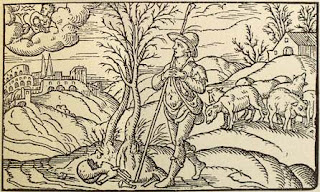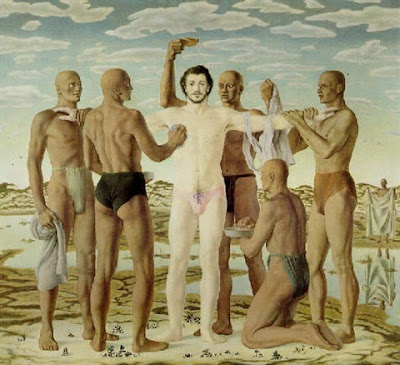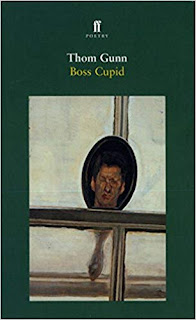Equal to the Earth: Jee Leong Koh: Androgyne.


It is true, Hermeticists see Hermeticism everywhere. There is an inbuilt bias to over-read. If Blake saw the Universe in a grain of sand, the Hermeticist finds Hermes in every light particle. Even so, as in the poetry of Thom Gunn, Hermetical ideas exist throughout Equal to the Earth, as a meaningful under-current.
I have read quite a few interpretations and responses to “Brother”, one of Jee Leong Koh’s finest lyrical poems in Equal to the Earth. The latest interpretation (from a radio interview) places the poem in the context of Darwinism. All life originated in the sea and the sea provides the origins of this poem. Interesting, but I don’t think so. Darwin’s evolutionary theory does not walk with Plato! Pope heralded the glories of Newton. Jee Leong Koh doesn’t view Darwin with the same enthusiasm.
“Brother” begins in the womb. Two brothers are given life. The “ultrasound”, says the speaker, “found us as one.” The act of creation is “monozygotic”, one divides into two. As in the Platonic androgyne myth, birth brings a split and wholeness is lost, separation is formed. The result is a kind of crisis (a psychic link actually felt by identical twins) in which early life re-lives the moment of cutting. Childish games, like hide-and-seek, mime the psychic reality and appear as anxiety: childhood is a continual search for the lost self, the lost beloved. Memories of a “cracked canoe” remember the fracture of birth, the “beak” that knotted the cord of life after hatching. From the inner loss rises an outer desire for the Other, the beloved made in the image of the lover. This is the basis of Eros, gay sexuality, “wet dreams of touching another man”.
At the close of the poem, there is a startling shift: first nature, “a turtle washed ashore; then art, “a lacquered carapace”. Through life and art, the poet seeks “absences” that recall total presence, sexual integration, two bodies as one.
Alchemically, following Jung, out of the feminine Anima, the matrix, the mothering sea, the masculine Animus is born. The Animus yearns for its opposite, not the heterosexual Anima, but another Animus, like itself, that is intimately connected to the Anima. “Brother”, by recasting the androgyne myth, expresses a desire for a brother…and brotherhood.
“Brother” is an exquisite re-working of alchemical myth, not in stereotyped alchemical images, but in fresh images from the subconscious waters of poetry.
I have read quite a few interpretations and responses to “Brother”, one of Jee Leong Koh’s finest lyrical poems in Equal to the Earth. The latest interpretation (from a radio interview) places the poem in the context of Darwinism. All life originated in the sea and the sea provides the origins of this poem. Interesting, but I don’t think so. Darwin’s evolutionary theory does not walk with Plato! Pope heralded the glories of Newton. Jee Leong Koh doesn’t view Darwin with the same enthusiasm.
“Brother” begins in the womb. Two brothers are given life. The “ultrasound”, says the speaker, “found us as one.” The act of creation is “monozygotic”, one divides into two. As in the Platonic androgyne myth, birth brings a split and wholeness is lost, separation is formed. The result is a kind of crisis (a psychic link actually felt by identical twins) in which early life re-lives the moment of cutting. Childish games, like hide-and-seek, mime the psychic reality and appear as anxiety: childhood is a continual search for the lost self, the lost beloved. Memories of a “cracked canoe” remember the fracture of birth, the “beak” that knotted the cord of life after hatching. From the inner loss rises an outer desire for the Other, the beloved made in the image of the lover. This is the basis of Eros, gay sexuality, “wet dreams of touching another man”.
At the close of the poem, there is a startling shift: first nature, “a turtle washed ashore; then art, “a lacquered carapace”. Through life and art, the poet seeks “absences” that recall total presence, sexual integration, two bodies as one.
Alchemically, following Jung, out of the feminine Anima, the matrix, the mothering sea, the masculine Animus is born. The Animus yearns for its opposite, not the heterosexual Anima, but another Animus, like itself, that is intimately connected to the Anima. “Brother”, by recasting the androgyne myth, expresses a desire for a brother…and brotherhood.
“Brother” is an exquisite re-working of alchemical myth, not in stereotyped alchemical images, but in fresh images from the subconscious waters of poetry.



Comments